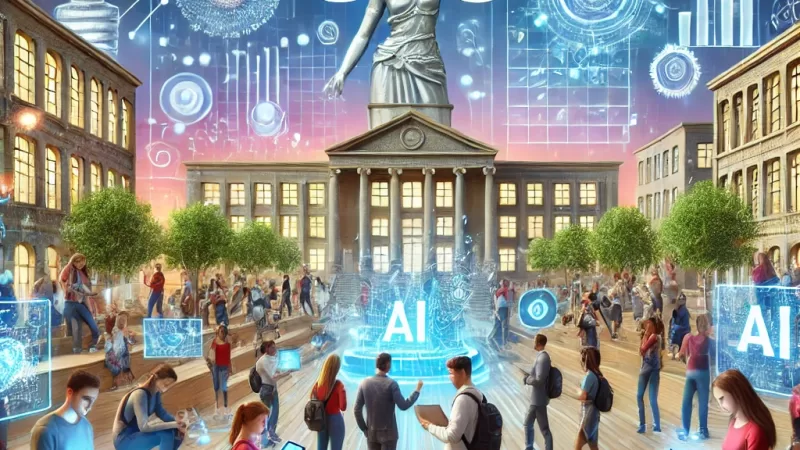The Rise of AI: Friend, Foe, or Something In Between?

Artificial intelligence (AI) is no longer just the stuff of sci-fi movies. It’s here, it’s everywhere, and it’s evolving faster than ever. From ChatGPT and Gemini helping with essay drafts, to AI art generators sparking debates about creativity, it seems like everyone has something to say about this technological revolution. But how should we be navigating the ever-changing digital landscape AI takeover? Friend, foe, or a bit of both?
The Friend: Your Academic Sidekick
AI has undoubtedly made life easier for students. Need quick research on a topic? AI tools can summarize articles and even suggest references. Struggling with writer’s block? Platforms like ChatGPT can spark ideas or refine your arguments.
Moreover, AI tools like Grammarly and plagiarism checkers have become indispensable in polishing assignments. And for those balancing studies and part-time jobs, AI scheduling apps can help manage hectic calendars. Is AI the ultimate productivity hack? Maybe. But is it too good to be true?
The Foe: Is AI Making Us Lazy?
Critics argue that reliance on AI could dull essential skills like critical thinking, creativity, and even basic literacy. If an algorithm can write an essay or solve a math problem, why bother learning to do it yourself?
There’s also the elephant in the room: academic integrity. Universities are already battling cases of AI-assisted plagiarism. Where do we draw the line between using AI as a tool and abusing it? And as future professionals, how can we stand out in a job market that’s increasingly automated?
The Grey Area: Navigating the Ethical Minefield
Beyond academics, AI raises deeper ethical concerns. Who owns AI-generated content? Is it ethical for artists, writers, or photographers to compete against algorithms that mimic their styles? Should we be worried about AI replacing jobs, or will it create opportunities we’ve yet to imagine?
And let’s not forget bias. AI learns from existing data, and if that data reflects societal inequalities, AI can perpetuate them. As students—especially in a university that champions inclusivity and innovation—what role should we play in holding tech developers accountable?
Why It Matters Now
This conversation isn’t just theoretical. The UK government is actively exploring regulations for AI, and companies like OpenAI and Google are constantly updating their tools. Meanwhile, employers are looking for graduates who understand AI’s potential and pitfalls.
So, whether you’re a Computer Science major or someone who’s just curious about what the future holds, it’s time to join the conversation. AI isn’t going away—it’s only getting smarter. The question is, how do we get smarter about using it?
What Do You Think?
Are you embracing AI as a study buddy, or do you see it as a looming threat? Share your thoughts in the comments, and let’s start a debate that’s as forward-thinking as the technology itself. Don’t forget to like, share, and tag a friend who always submits assignments on time (maybe thanks to a little AI help).